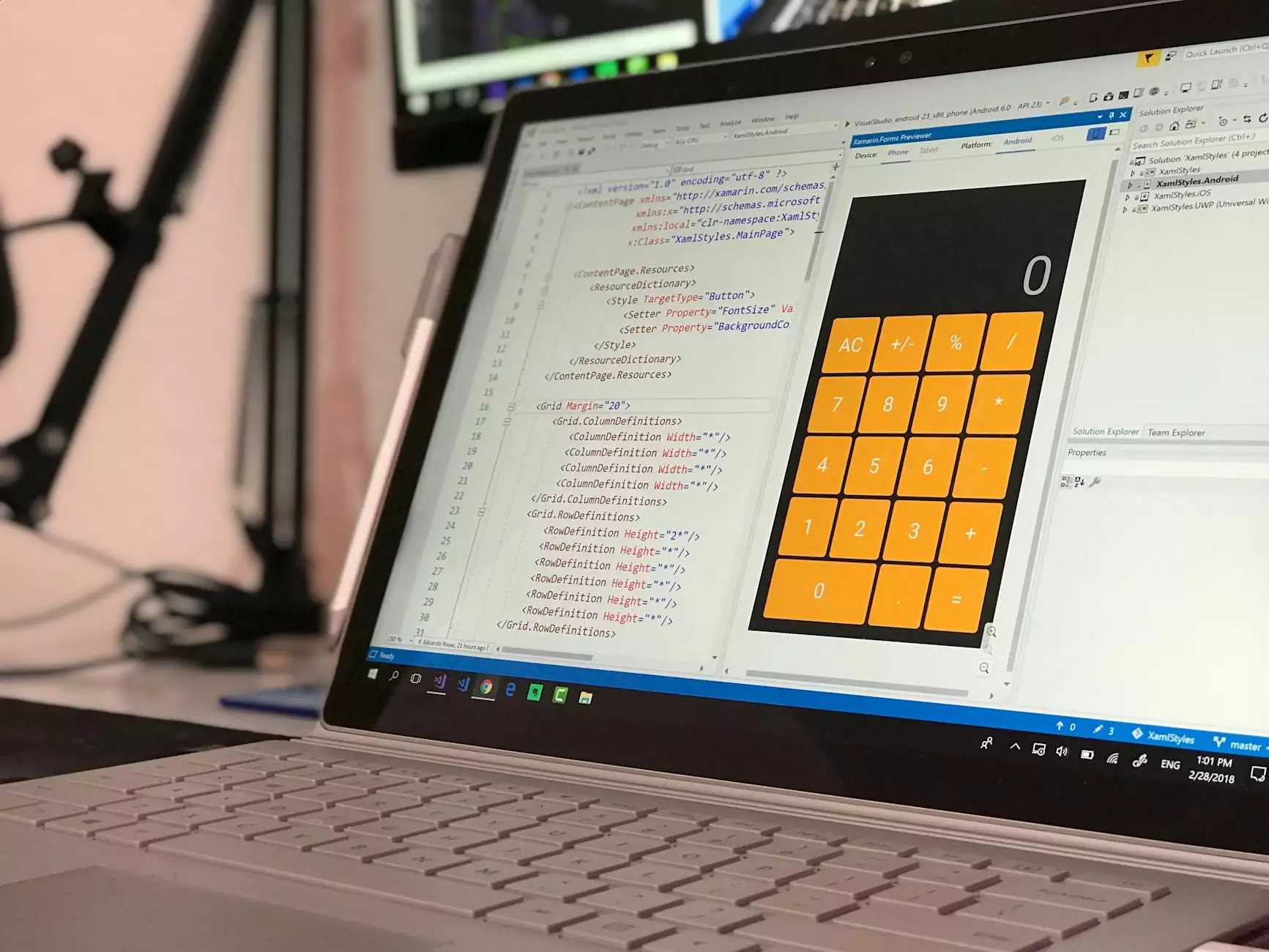Best Mobile App Development Frameworks in 2023
Blog
Introduction
Welcome to Smartbiz Design's comprehensive guide on the best mobile app development frameworks in 2023. As a recognized leader in the business and consumer services - digital marketing industry, we strive to provide our clients with the latest insights and trends in the rapidly evolving mobile app development landscape. In this article, we will explore the top frameworks that can help you create high-performing and cutting-edge mobile applications.
1. React Native
When it comes to cross-platform app development, React Native stands out as a powerful framework that allows developers to build native-like mobile apps using JavaScript. Developed by Facebook, React Native offers a rich and intuitive environment for creating engaging user interfaces. With its extensive library of pre-built components and exceptional performance, React Native has gained significant popularity in recent years.
2. Flutter
Flutter, an open-source UI framework developed by Google, has gained remarkable traction in the mobile app development industry. Flutter enables developers to create visually stunning and high-performing apps for multiple platforms, including iOS, Android, and even web applications. Its hot-reload feature allows for quick testing and iteration, making it an excellent choice for agile development teams.
3. Xamarin
Owned by Microsoft, Xamarin offers a robust framework for developing cross-platform apps using C#. By sharing code across multiple platforms, Xamarin enables developers to reduce development time and effort significantly. With its native performance and powerful IDE integration, Xamarin is widely used by developers for building feature-rich apps that meet the highest standards.
4. Ionic
If you are looking for a framework that leverages web technologies, Ionic is an excellent choice. Powered by Angular and Apache Cordova, Ionic enables developers to build cross-platform apps using familiar web development languages such as HTML, CSS, and JavaScript. With its extensive plugin ecosystem and ease of use, Ionic provides a scalable solution for creating hybrid apps that deliver a seamless user experience.
5. NativeScript
NativeScript, an open-source framework, allows developers to build native mobile apps using JavaScript, TypeScript, or Angular. With NativeScript, you can leverage platform-specific APIs and UI components to create truly native experiences. Whether you are targeting iOS or Android, NativeScript empowers developers to build high-performance apps that take full advantage of platform capabilities.
6. PhoneGap
PhoneGap, now known as Apache Cordova, is a popular framework for building cross-platform mobile apps using web technologies. By wrapping HTML, CSS, and JavaScript code within a native container, PhoneGap allows developers to access device features and APIs. With its extensive plugin ecosystem and compatibility with various platforms, PhoneGap offers a streamlined development process for both small businesses and enterprise-level projects.
7. Flutter
Corona SDK is another noteworthy framework that deserves attention. It specializes in game development and simplifies the process of creating mobile games for multiple platforms. With its easy-to-understand scripting language, Lua, developers can quickly prototype and deploy games with stunning graphics and engaging gameplay.
Conclusion
In conclusion, choosing the right mobile app development framework is crucial to ensure the success of your business in 2023. With a plethora of options available, it's essential to understand your project requirements, target platforms, and development team's skill set. Smartbiz Design is here to guide you in making informed decisions and delivering exceptional app experiences. Contact us today to discuss your mobile app development needs and stay ahead of the competition!










